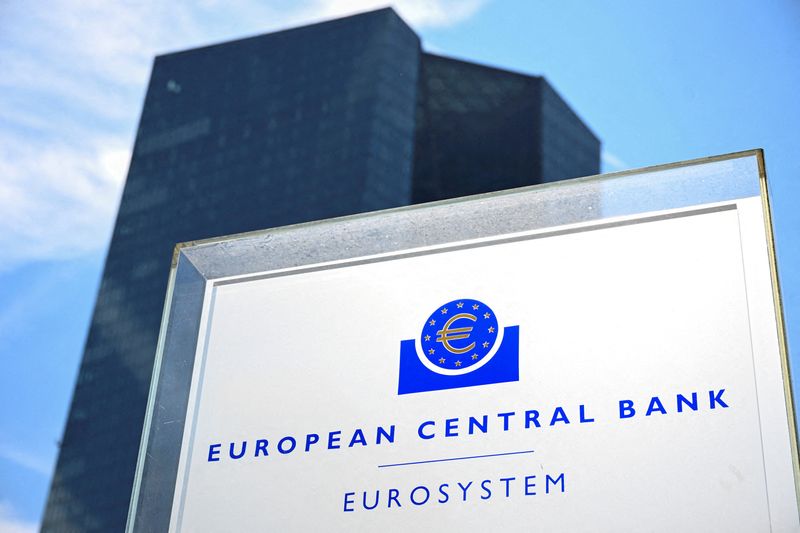By Balazs Koranyi
TALLINN (Reuters) -Euro zone inflation is falling as predicted, easing the risk that further rate cuts would derail disinflation, but the European Central Bank must become increasingly cautious as rates go lower, ECB board member Isabel Schnabel said on Friday.
The ECB is widely expected to cut interest rates again next month given easing price pressures, and Schnabel’s comments are likely to bolster those bets since the bank’s “baseline” already assumed two more rate cuts this year after June’s initial cut.
“Recent data remain consistent with the baseline scenario that foresees that inflation will sustainably fall back to our 2% target by the end of 2025,” Schnabel told a lecture in Tallinn, Estonia.
While Schnabel did not directly argue for policy easing, she said further gradual rate cuts might not derail the disinflation process as some policymakers had feared.
“Along with signs of a potential decline in economic momentum in other parts of the world, there is less risk that a further moderate and gradual dialling back of policy restraint could derail the path back to price stability,” Schnabel added.
Speaking alongside Schnabel, Finnish central bank chief Olli Rehn said that weaker economic growth raises the case for a September rate cut while Latvia’s Martins Kazaks agreed that the baseline was on track.
Still, Schnabel, an influential voice among the more hawkish policymakers who drove the ECB’s steepest ever streak of interest rate hikes in 2022-23, said that as rates ease, the ECB must become more careful since few know where monetary restriction ends and stimulus begins.
“The closer policy rates get to the upper band of estimates of the neutral rate of interest – that is, the less certain we are how restrictive our policy is, the more cautious we should be,” Schnabel said.
She also hinted that rate changes once a quarter may be more appropriate.
“Making policy robust to these risks requires a thorough review of the main assumptions underlying the baseline scenario for policy to be adjusted,” she said, adding that such a review comes every three months.
Schnabel also played down the risk of an economic downturn, arguing that a “soft landing” is still more likely than a recession.
Part of Schnabel’s caution stems from fears that inflation could still rebound if the economy develops differently.
“Although surveys suggest weaker wage growth ahead, the staggered nature of wage negotiations implies that workers may take longer than projected to recoup their purchasing power,” Schnabel added.
Wage growth could also remain high because the labour market is still tight and an imbalance between labour supply and demand could challenge the ECB’s assumption that wage growth is merely a reflection of a catch-up process after inflation eroded workers’ buying power.
The long-expected rebound in productivity also seems to be delayed and poor productivity growth, which may be exacerbated by trade tensions, could also pressure wages, Schnabel added.

